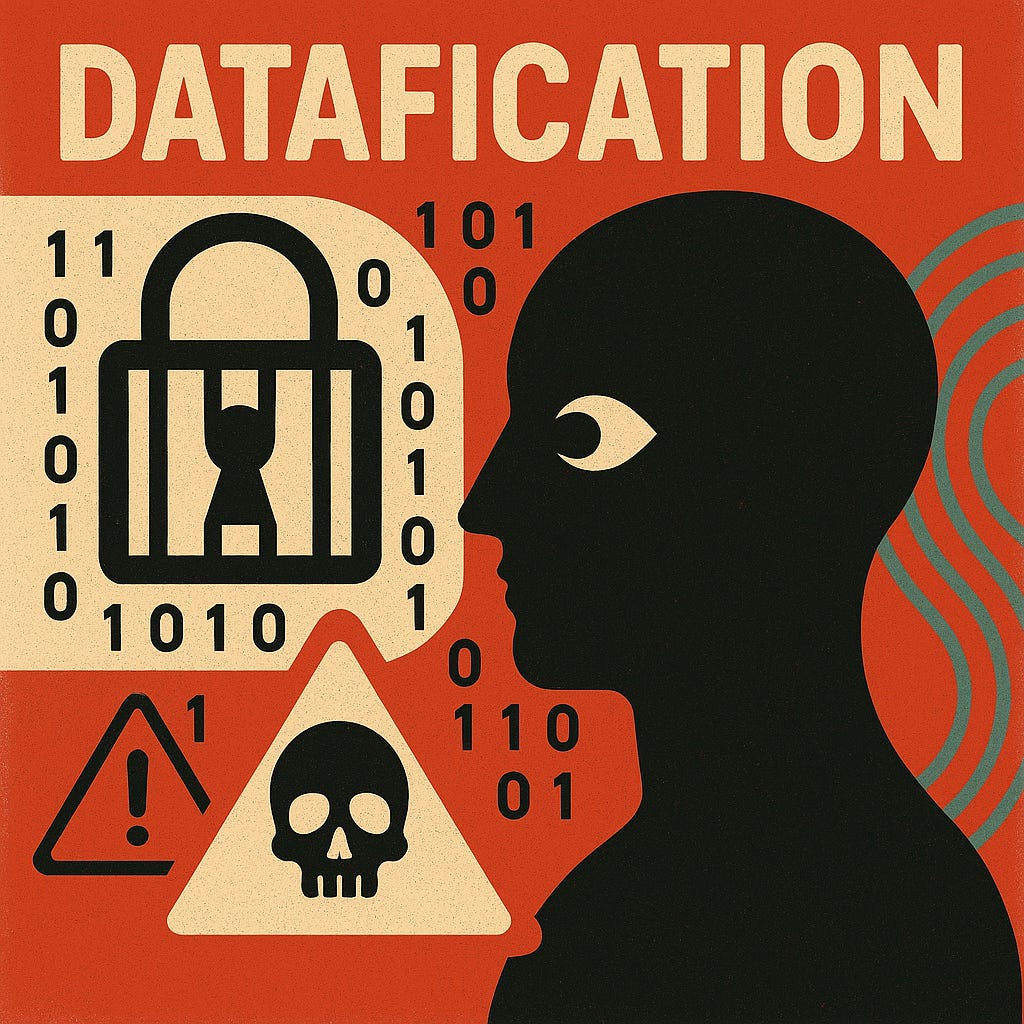Resisting the Algorithm
Reclaiming Humanity in the Age of Datafication
Next week, I begin a new journey.
As you may know, I recently entered retirement. One of the most important lessons I’ve learned about this phase of life is the necessity of continual learning. So, next week, I’ll embark on a one-year Data Science program at Eastern University.
During my time as a National Program Manager at the Department of Veterans Affairs (VA), I saw firsthand the critical need for data collection and analysis. I wanted to understand how our chaplain clinicians were performing in the field—measuring the effectiveness of spiritual care interventions, patient-centered outcomes, and overall client satisfaction. But I lacked the data and the skills to obtain and analyze it. My concern wasn’t about productivity and efficiency (the usual managerial obsessions); I wanted to tell a more compelling story about all the good VA chaplains were doing and to find ways to increase the quality of spiritual care. I want to use data for good.
Data itself isn’t new; nor is it inherently bad. Once humans learned to count, we began gathering and analyzing data. Data can serve socially redeeming purposes, from weather prediction and medical advancements, to exposing injustices and preventing misuse. Like any tool, its morality depends on who wields it and why.
Yet, as I step into this field, my spiritual and ethical instincts are on high alert. Too often, data is weaponized for exploitation: maximizing efficiency, boosting productivity, increasing profits, and, as we have all heard recently, ultimately replacing human workers with AI.
I don’t remember who said it, and I probably don’t have it exactly, but it is still powerfully true: Efficiency is a tool of the oppressor and productivity an instrument of the abuser. Capitalists are using data to create new, deceptive sales tactics that will increase profit—enriching corporations and individual billionaires while leaving everyday people impoverished. And AI? It’s really just a humongous database using algorithms designed to transform us from feudal consumers into enslaved subscribers, chained to monopolized content providers.
This exploitative use of data has a name: datafication.
Datafication is the modern phenomenon of quantifying human life through digital information, extracting value from every click, like, and search (Mejias & Couldry, 2019). We live in an era where all aspects of our qualitative lives are being datafied—turned into analyzable behavior patterns. Unlike mined resources (copper, gold), data is manufactured, extracted from the “ground” of social life (Mejias & Couldry, 2019).
Data is the new capital.
Just as finance capital superseded industrial capital, Big Data has become the latest desire of the bourgeoise. Corporations are investing hundreds of billions in data centers, hoarding information extracted from people—often without their knowledge or consent. The billionaire class profits from our data, then sells it back to us through digital subscriptions and essential products.
The so-called End User Licensing Agreements (EULAs) we “agree” to are one-sided contracts that grant corporations permission to exploit us. As Sadowski (2019) notes, these agreements are “non-negotiated and non-negotiable.” They enable modern robber barons to profile individuals, optimize exploitative systems, and create new digital commodities for mass consumption.
Datafication, as Kennedy (2018) warns, “reproduces old inequalities and creates new ones.” The divide between the data owners and the data “workers” (you and I), will fuel a new class war. Worse yet, datafication dehumanizes—reducing people to predictable patterns, eroding autonomy, and conditioning us to define ourselves by external metrics.
But there’s hope.
I’m reminded of Joseph, sold into slavery by his jealous brothers, only to become their rescuer. “You intended to harm me, but God intended it for good” (Genesis 50:20). My prayer is that as we learn to use data for good and expose the "data-devils," we can resist and overthrow those trying to harm us through datafication.


